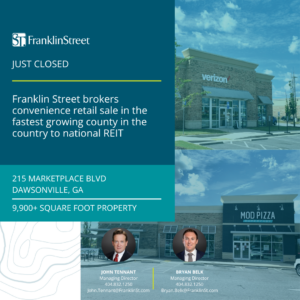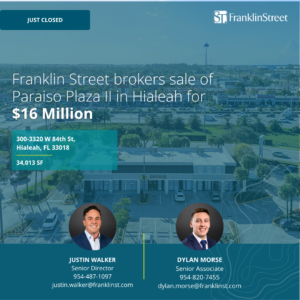MIAMI—Hurricane season is right around the corner and forecasters are predicting the most active and dangerous spell in three years. The next three years of the 2015 Atlantic Basin, in fact, will be the most dangerous in 10 years, according to Global Weather Oscillations (GWO), a hurricane cycle prediction company.
While hostile upper atmospheric winds that suppressed tropical activity the past two hurricane seasons—2013 and 2014—GWO predicts the next few years will enter a natural “Climate Pulse Enhancement Cycle” that will be favorable for more active and intense hurricane seasons. What does that mean for commercial real estate owners?
GlobeSt.com caught up with Evan Seacat, senior director at Franklin Street Insurance Services in South Florida, to get some answers. In part one of this exclusive interview we asked him how policy owners tend to put themselves at risk and how building owners can take a hit during a storm.
GlobeSt.com: What do policyholders tend to omit from their coverage and how are they putting themselves at risk?
Seacat: What I see most often is that building owners and managers don’t take loss of rents coverage. They do not want the added premium.
If there’s hurricane damage to the property, they expect to relocate tenants, but keep them on the property and paying rent. That’s a hope, not a plan. If a major storm rips the roof off a building, tenants will have to move. During that time, the property will generate no rental income.
Loss of rent coverage protects against that occurrence. It has a deductible based on a percentage of the property’s value. Almost all lenders will require the coverage. I suggest keeping it even after the mortgage is paid in full. And if the policy is from Citizens, the owner will have to buy coverage from another insurer as Citizens does not offer that particular coverage.
GlobeSt.com: How else can a building owner or manager take a financial hit from a storm?
Seacat: By not having proper Law and Ordinance coverage. Almost all lenders require it for re-financings and new purchases. But it may not be part of an older policy.
Law and Ordinance coverage applies when a building experiences extensive damage, the kind that a hurricane can cause. The law says that when more than half of the property is damaged, the property must be rebuilt to current code.
That becomes expensive for buildings from 1970s and earlier that don’t have the safety equipment that’s required today. The older the building, the more expensive the upgrade; Law and Ordinance coverage pays for that expense.



